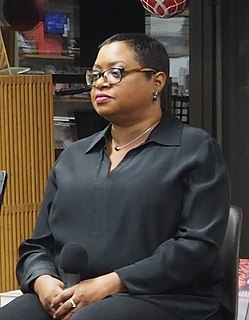A Quote by Ian Mcewan
She bent her finger and then straightened it. The mystery was in the instant before it moved, the dividing moment between not moving and moving, when her intention took effect. It was like a wave breaking. If she could only find herself at the crest, she thought, she might find the secret of herself, that part of her that was really in charge. She brought her forefinger closer to her face and stared at it, urging it to move. It remained still because she was pretending... . And when she did crook it finally, the action seemed to start in the finger itself, not in some part of her mind.
Quote Topics
Action
Because
Before
Bent
Between
Breaking
Brought
Charge
Closer
Could
Crest
Crook
Did
Dividing
Effect
Face
Finally
Find
Finger
Her
Herself
Instant
Intention
Itself
Like
Might
Mind
Moment
Move
Moved
Moving
Mystery
Only
Part
Pretending
Really
Remained
Secret
Seemed
She
Some
Start
Still
The Secret Of
Then
Thought
Took
Wave
Related Quotes
She stared at herself in the mirror. Her eyes were dark, almost black, filled with pain. She'd let someone do that to her. She'd known all along she felt things too deeply. She became attached. She didn't want a lover who could walk away from her, because she could never do that - love someone completely and survive intact if her left her.
I found her lying on her stomach, her hind legs stretched out straight, and her front feet folded back under her chest. She had laid her head on his grave. I saw the trail where she had dragged herself through the leaves. The way she lay there, I thought she was alive. I called her name. She made no movement. With the last ounce of strength in her body, she had dragged herself to the grave of Old Dan.
Perhaps I will die too, she told herself, and the thought did not seem so terrible to her. If she flung herself from the window, she could put an end to her suffering, and in the years to come the singers would write songs of her grief. Her body would lie on the stones below, broken and innocent, shaming all those who had betrayed her. Sansa went so far as to cross the bedchamber and throw open the shutters ... but then her courage left her, and she ran back to her bed, sobbing.
Once upon a time there was a girl who wanted to put her fist through a mirror. She would tell everyone it was so that she could see what was on the other side, but really, it was so that she wouldn't have to look at herself. That, and because she thought she might be able to steal a piece of glass when no one was looking, and use it to carve her heart out of her chest.
But she did not take her eyes from the wheels of the second car. And exactly at the moment when the midpoint between the wheels drew level with her, she threw away the red bag, and drawing her head back into her shoulders, fell on her hands under the car, and with a light movement, as though she would rise immediately, dropped on her knees. And at the instant she was terror-stricken at what she was doing. 'Where am I? What am I doing? What for?' She tried to get up, to throw herself back; but something huge and merciless struck her on the head and dragged her down on her back.
She emptied herself of Fabio and of herself, of all the useless efforts she had made to get where she was and find nothing there. With detached curiosity she observed the rebirth of her weaknesses, her obsessions. This time she would let them decide, since she hadn't been able to do anything anyway. Against certain parts of yourself you remain powerless, she said to herself, as she regressed pleasurably to the time when she was a girl.
How was it that he haunted her imagination so persistently? What could it be? Why did she care for what he thought, in spite of all her pride in spite of herself? She believed that she could have borne the sense of Almighty displeasure, because He knew all, and could read her penitence, and hear her cries for help in time to come. But Mr.Thornton-why did she tremble, and hide her face in the pillow? What strong feeling had overtaking her at last?
I pu my finger to her lips. "You have to hush a minute so that I can tell you something." "What?" she says, bites my finger. I look at her. "I love you." She gets quiet, the kind of quiet that sinks into her, softens her. "Well that works out," she finally says, her voice deeper and breathless, her eyes moist, "because I love you too." She turns, leans against my arm, and settles into me.
Yet there were times when he did love her with all the kindness she demanded, and how was she to know what were those times? Alone she raged against his cheerfulness and put herself at the mercy of her own love and longed to be free of it because it made her less than he and dependent on him. But how could she be free of chains she had put upon herself? Her soul was all tempest. The dreams she had once had of her life were dead. She was in prison in the house. And yet who was her jailer except herself?
[Keeping kosher was] the symbol of an initiation, like the insignia of a secret brotherhood, that set her apart and gave her freedom and dignity. Every law whose yoke she accepted willingly seemed to add to her freedom: she herself had chosen . . . To enter that brotherhood. Her Judaism was no longer a stigma, a meaningless accident of birth from which she could escape . . . It had become a distinction, the essence of her self-hood, what she was, what she wanted to be, not merely what she happened to be.
A queen is wise. She has earned her serenity, not having had it bestowed on her but having passer her tests. She has suffered and grown more beautiful because of it. She has proved she can hold her kingdom together. She has become its vision. She cares deeply about something bigger than herself. She rules with authentic power.
But what I kept wondering about is this: that first second when she felt her skirt burning, what did she think? Before she knew it was candles, did she think she'd done it herself? With the amazing turns of her hips, and the warmth of the music inside her, did she believe, for even one glorious second, that her passion had arrived?
When I looked at [Fannie Lou] Hamer and that speech it seemed to me that she had to be the bravest woman ever, to come before that body and to assert her rights, when she knew that she was going lose that battle. But she did it anyway, because she knew she was speaking not just for herself and for that day, but for me, and for all the other young women who were coming behind her. She didn't know our names, but she was working for us. I find that incredibly empowering.
She closed her eyes and jumped. For a moment she felt herself hang suspended, free of everything. Then gravity took over, and she plunged toward the floor. Instinctively she pulled her arms and legs in, keeping her eyes squeezed shut. The cord pulled taut and she rebounded, flying back up before falling again. As her velocity slowed, she opened her eyes and found herself dangling at the end of the cord, about five feet above Jace. He was grinning. 'Nice', he said. 'As graceful as a falling snowflake.
Though at this moment she felt abused, abandoned, and ashamed of herself, Madeleine knew that she was still young, that she had her whole life ahead of her--a life in which, if she persevered, she might do something special--and that part of persevering meant getting past moments just like this one, when people made you feel small, unlovable, and took away your confidence.
She was the first person on either side of her family to go to college, and she held herself to insanely high standards. She worried a lot about whether she was good enough. It was surprising to see how relieved she seemed whenever I told her how amazing she was. I wanted her to feel strong and free. She was beautiful when she was free.






































